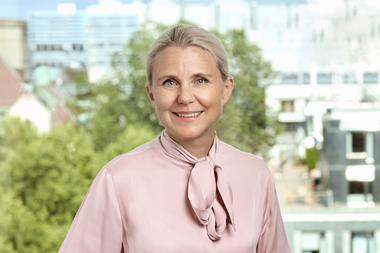EUROPE - Ucits collective investment schemes saw net inflows of €22bn for the opening three months of 2009, in marked contrast to net outflows recorded for the previous six quarters since the credit crisis began.
According to the latest quarterly statistics released by the European Fund and Asset Management Association (Efama), there were still strong inflows into money market funds of €52bn but the key turning point for 1Q 2009 was a sharp deceleration in net outflows from long-term Ucits.
The amount of money moving out of Ucits funds fell from €140bn in the fourth quarter of 2008 to €31bn in the first quarter of 2009. largely because of significantly lower net outflows from equity and bond funds, according to the Brussels-based body for European financial associations.
Money market funds have regained their status of safe haven investment, the institution said.
The evolution of monthly net sales of Ucits suggests investor fears about financial assets have receded sharply since the Lehman Brothers collapse in September last year.
Moreover, there were positive net positive inflows into equity and bond funds in January and even if new market turbulence in February and March unnerved investors again, the outflows remained small, according to EFAMA.
Speaking to journalists earlier today, Peter De Proft, director general at EFAMA, said figures are still being gathered concerning asset sales in April, the general indications are "the market has been much more positive".
"While some countries may still be suffering, we can say that the bleeding has stopped", stated De Proft.
Addressing the trends in net assets by investment type, the report showed the total of net assets of Ucits fell by 1.3% in the first quarter, to reach €4.49bn at end of March while equity and balanced funds recorded the sharpest decline, reflecting stock market losses.
In contrast, money market funds saw their assets increase by 6.5% in the first quarter of 2009 and the sharp reduction in the net assets held in funds-of-funds reflected the reclassification of German-domiciled funds-of-funds.
Further analysis of net sales in the Ucits market by domicile suggests nine European countries also recorded positive net sales in the first quarter of 2009, and France was the main beneficiary as outflows reversed to positive inflows of €33bn, led by new investment into money market funds.
UK domiciled funds continued to attract new money, and fixed income funds saw inflows of €5bn while German-domiciled Ucits also saw positive growth.
Elsewhere in Europe, Ucits domiciled in Liechtenstein, Norway, Romania, Sweden, Switzerland and Turkey also enjoyed positive net sales.
Efama previously estimated that funds under management in Europe reached €10.7trn at the end of 2008, compared with €13.6trn a year earlier.
If you have any comments you would like to add to this or any other story, contact Julie Henderson on + 44 (0)20 7261 4602 or email julie.henderson@ipe.com












